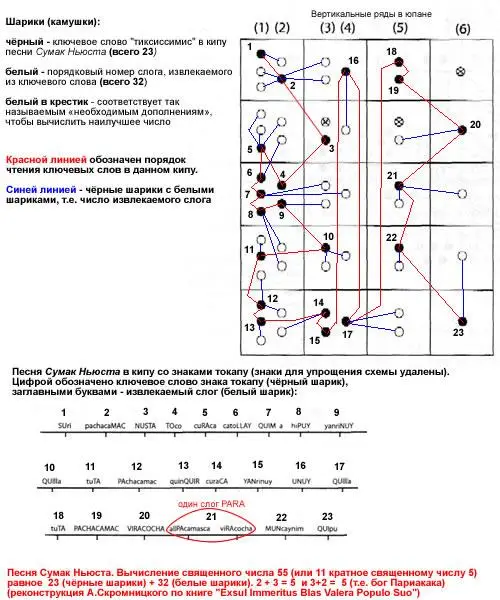Are you experiencing vision problems, trouble sleeping, or unexpected weight gain? These may be signs that your body is craving Omega-3 fatty acids. In the YouTube video “Deciphering the Telltale Signs: Is Your Body Craving Omega-3”, we explore the importance of Omega-3s in maintaining overall health and discuss the ten telltale signs of Omega-3 deficiency. Stay tuned to learn how to identify if you are lacking this essential nutrient and discover ways to improve your intake for better health. Remember, all information in this video is unbiased and reviewed by qualified health professionals. Let’s delve into the world of Omega-3s and uncover the signs your body may be sending you.
Vision problems
All right, signs and symptoms of Omega-3 deficiency omega-3 fatty acids are essential nutrients that our bodies cannot produce on their own and must be obtained through our diet or supplements. These fatty acids play a crucial role in maintaining our overall health including brain function, heart health, and immune system function. However, despite the importance of Omega-3s, many people may not be consuming enough of them in their diet which can lead to a deficiency. In this video, we will discuss the signs and symptoms of Omega-3 deficiency which can help you identify it you are lacking in this important nutrient and take steps to improve your intake.
One of the telltale signs of Omega-3 deficiency is . Omega-3s are an essential component of the retina in our eyes, and a deficiency can lead to a range of issues that affect our vision. The retina is responsible for converting light into signals that the brain can interpret, and Omega-3s play a crucial role in supporting this process. A lack of Omega-3s may lead to dry eye syndrome, which is characterized by inflammation and irritation of the eye’s surface. Fortunately, increasing your intake of Omega-3s can help improve and protect your vision. Incorporating foods rich in Omega-3s such as fatty fish, flax seeds, and walnuts can help increase your intake of these essential nutrients. Alternatively, supplements such as fish oil or krill oil can also be effective in boosting your omega-3 levels.
Another sign of Omega-3 deficiency is trouble sleeping. Research has shown that low levels of Omega-3s in the body can contribute to sleep disturbances such as insomnia, difficulty falling asleep, and frequent wake-ups during the night. This is because Omega-3s are involved in regulating the production of the sleep hormone melatonin, which helps us to fall asleep and stay asleep. Furthermore, Omega-3s have been found to help reduce inflammation in the body, which can also impact sleep. Inflammation can lead to discomfort, pain, and other health issues that may interfere with our ability to get a good night’s sleep. If you are experiencing trouble sleeping, it may be worth considering whether you are getting enough Omega-3s in your diet. Additionally, Omega-3 supplements are widely available and can help to boost your intake. By addressing your Omega-3 deficiency, you may be able to improve your sleep and overall health.
Trouble sleeping
Omega-3 fatty acids are essential nutrients that our bodies cannot produce on their own and must be obtained through our diet or supplements. These fatty acids play a crucial role in maintaining our overall health, including brain function, heart health, and immune system function. However, despite the importance of Omega-3s, many people may not be consuming enough of them in their diet, which can lead to a deficiency.
Vision problems can be a sign of Omega-3 deficiency, as these fatty acids are essential for the retina in our eyes to function properly. A lack of Omega-3s may lead to issues such as dry eye syndrome. Incorporating foods rich in Omega-3s, such as fatty fish, flax seeds, and walnuts, can help improve and protect your vision.
is another telltale sign of Omega-3 deficiency that should not be ignored. Low levels of Omega-3s in the body can contribute to sleep disturbances such as insomnia and difficulty falling asleep. Omega-3s play a role in regulating the production of the sleep hormone melatonin, which helps us to fall asleep and stay asleep. Considering Omega-3 supplements may help improve your sleep and overall health.
Inadequate levels of Omega-3 fatty acids in the body can contribute to weight gain and even obesity. Omega-3s play a key role in regulating metabolism, and a deficiency can impact weight management. If you find yourself adding a few extra pounds despite your efforts, it might be worth considering your Omega-3 intake. Consider incorporating more Omega-3 rich foods into your diet or exploring Omega-3 supplements to address any deficiencies and support your overall health.
Weight gain
Brain function, heart health, and immune system function are just a few of the crucial roles that Omega-3 fatty acids play in maintaining our overall health. Despite their importance, many individuals may not be consuming enough Omega-3s in their diet, leading to potential deficiencies. One telltale sign of an Omega-3 deficiency is vision problems, as these essential nutrients are integral to the health of the retina in our eyes. Symptoms may include dry eye syndrome, inflammation, and irritation of the eye’s surface.
Another sign of Omega-3 deficiency is trouble sleeping, as low levels of these fatty acids have been linked to sleep disturbances such as insomnia and frequent wake-ups during the night. Omega-3s help regulate the production of the sleep hormone melatonin, aiding in falling asleep and staying asleep. Additionally, inflammation in the body, which Omega-3s can help reduce, may impact sleep quality. Consider incorporating Omega-3-rich foods like fatty fish, flax seeds, and walnuts into your diet, or opt for supplements like fish oil or krill oil to address deficiencies.
Surprisingly, inadequate levels of Omega-3 fatty acids can also contribute to and obesity. Omega-3s play a vital role in regulating metabolism and supporting weight management. If you are struggling with some extra pounds that you can’t seem to shed, it may be worth evaluating your Omega-3 intake. Incorporating more of these essential nutrients into your diet or taking supplements could help support weight loss and overall health. Don’t overlook the subtle signs your body may be giving you – it could be craving Omega-3 to maintain optimal health and well-being.
Mood swings
Omega-3 fatty acids are essential nutrients that our bodies cannot produce on their own and must be obtained through our diet or supplements. These fatty acids play a crucial role in maintaining our overall health, including brain function, heart health, and immune system function. However, despite the importance of Omega-3s, many people may not be consuming enough of them in their diet, which can lead to a deficiency. Let’s decipher the telltale signs that your body may be craving Omega-3.
Vision Problems: The retina in our eyes requires Omega-3s to function properly. A deficiency in Omega-3s can lead to issues such as dry eye syndrome, causing inflammation and irritation of the eye’s surface. Incorporating foods rich in Omega-3s like fatty fish, flax seeds, and walnuts, or using supplements like fish oil or krill oil, can help improve and protect your vision.
Trouble Sleeping: Low levels of Omega-3s have been linked to sleep disturbances such as insomnia and difficulty falling asleep. Omega-3s help regulate the production of the sleep hormone melatonin, which is essential for a good night’s sleep. Consider increasing your Omega-3 intake through diet or supplements to potentially improve your sleep quality.
Weight Gain: Research has shown that inadequate levels of Omega-3 fatty acids in the body can contribute to weight gain and obesity. Omega-3s play a key role in regulating metabolism and reducing inflammation, both of which are important factors in managing weight. By addressing your Omega-3 deficiency, you may be able to prevent unwanted pounds and support your overall health.
Dry skin
Omega-3 fatty acids are essential for maintaining healthy skin, and a deficiency in these vital nutrients can result in dry, rough, and flaky skin. If you’ve been experiencing any of these telltale signs, your body may be craving Omega-3 to support your skin health. Here are some key indicators to look out for:
-
Rough and Flaky Skin: Lack of Omega-3 can lead to impaired skin barrier function, causing moisture loss and resulting in dry, rough, and flaky skin.
-
Increased Sensitivity: Omega-3 deficiency can make your skin more prone to irritation and sensitivity, making it harder to retain moisture and stay hydrated.
-
Dull Complexion: If your skin lacks Omega-3, it may appear dull, lackluster, and tired due to the reduced ability to maintain proper hydration levels.
To combat and improve your overall skin health, incorporate Omega-3 rich foods into your diet such as fatty fish, chia seeds, and hemp seeds. Additionally, consider adding Omega-3 supplements like fish oil or flaxseed oil to ensure you’re meeting your body’s needs for these essential fatty acids. Taking steps to address your Omega-3 deficiency can help restore moisture and vitality to your skin, leaving it looking and feeling healthier.
Frequent illness
Omega-3 fatty acids are essential nutrients that our bodies cannot produce on their own and must be obtained through our diet or supplements. These fatty acids play a crucial role in maintaining our overall health, including brain function, heart health, and immune system function. However, despite the importance of Omega-3s, many people may not be consuming enough of them in their diet, which can lead to a deficiency.
-
Vision Problems: Omega-3s are an essential component of the retina in our eyes, and a deficiency can lead to a range of issues that affect our vision. Dry eye syndrome, characterized by inflammation and irritation of the eye’s surface, can occur due to a lack of Omega-3s. Increasing your intake of Omega-3s through foods like fatty fish, flax seeds, and walnuts, or through supplements like fish oil or krill oil, can help improve and protect your vision.
-
Trouble Sleeping: Low levels of Omega-3s in the body have been linked to sleep disturbances such as insomnia, difficulty falling asleep, and frequent wake-ups during the night. Omega-3s play a role in regulating the production of the sleep hormone melatonin, as well as reducing inflammation in the body, which can impact sleep. Consider adding Omega-3-rich foods or supplements to your diet to improve your sleep and overall health.
-
Weight Gain: Research has shown that inadequate levels of Omega-3 fatty acids in the body can contribute to weight gain and obesity. Omega-3s play a key role in metabolism regulation, and a deficiency may lead to difficulties in weight management. By addressing your Omega-3 deficiency through diet or supplements, you may be able to prevent unwanted weight gain and support your overall health.

Joint pain
Omega-3 fatty acids are essential nutrients that our bodies cannot produce on their own and must be obtained through our diet or supplements. These fatty acids play a crucial role in maintaining our overall health, including brain function, heart health, and immune system function. However, despite the importance of Omega-3s, many people may not be consuming enough of them in their diet, which can lead to a deficiency.
One telltale sign of Omega-3 deficiency is vision problems. Omega-3s are an essential component of the retina in our eyes, and a deficiency can lead to issues that affect our vision. Incorporating foods rich in Omega-3s such as fatty fish, flax seeds, and walnuts can help increase your intake of these essential nutrients and improve your vision.
Another sign of Omega-3 deficiency is trouble sleeping. Research has shown that low levels of Omega-3s in the body can contribute to sleep disturbances such as insomnia and difficulty falling asleep. Omega-3s are involved in regulating the production of the sleep hormone melatonin, which helps us to fall asleep and stay asleep. Consider adding Omega-3 supplements to your diet to help improve your sleep and overall health.
Inadequate levels of Omega-3 fatty acids in the body can also contribute to weight gain. Omega-3s play a key role in regulating metabolism and can help prevent obesity. By addressing your Omega-3 deficiency through dietary changes or supplements, you may be able to maintain a healthy weight and improve your overall health.
Q&A
Q: What are some signs and symptoms of Omega-3 deficiency discussed in the YouTube video?
A: Some signs and symptoms of Omega-3 deficiency discussed in the video include vision problems, trouble sleeping, and potential weight gain.
Q: How do Omega-3 fatty acids play a crucial role in maintaining our overall health?
A: Omega-3 fatty acids play a crucial role in brain function, heart health, and immune system function.
Q: What are some foods rich in Omega-3s that can help improve intake?
A: Foods rich in Omega-3s include fatty fish, flax seeds, and walnuts.
Q: How can Omega-3 supplements help boost intake of this important nutrient?
A: Omega-3 supplements, such as fish oil or krill oil, can help boost Omega-3 levels in the body.
Q: Is the information presented in the YouTube video unbiased and fact-checked?
A: Yes, everything mentioned in the video is unbiased, fact-checked, and reviewed by qualified health professionals.
The Way Forward
In conclusion, understanding the signs and symptoms of Omega-3 deficiency is crucial in maintaining our overall health and well-being. From vision problems to trouble sleeping and weight gain, our bodies often give us hints when we are lacking in this important nutrient. By incorporating Omega-3-rich foods into our diet or considering supplements, we can take steps to ensure we are meeting our body’s needs. So, listen to your body and give it the Omega-3s it craves for better health and vitality. Thank you for watching and stay tuned for more informative content on how to nourish your body from the inside out.




Pingback: island health and fitness - Dr Strong